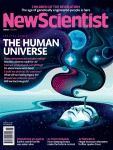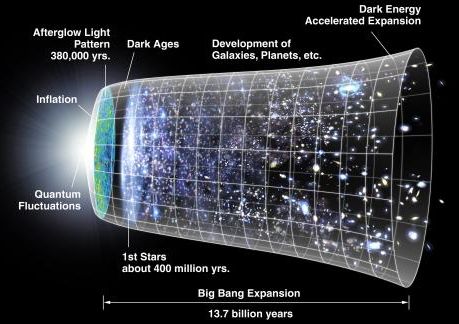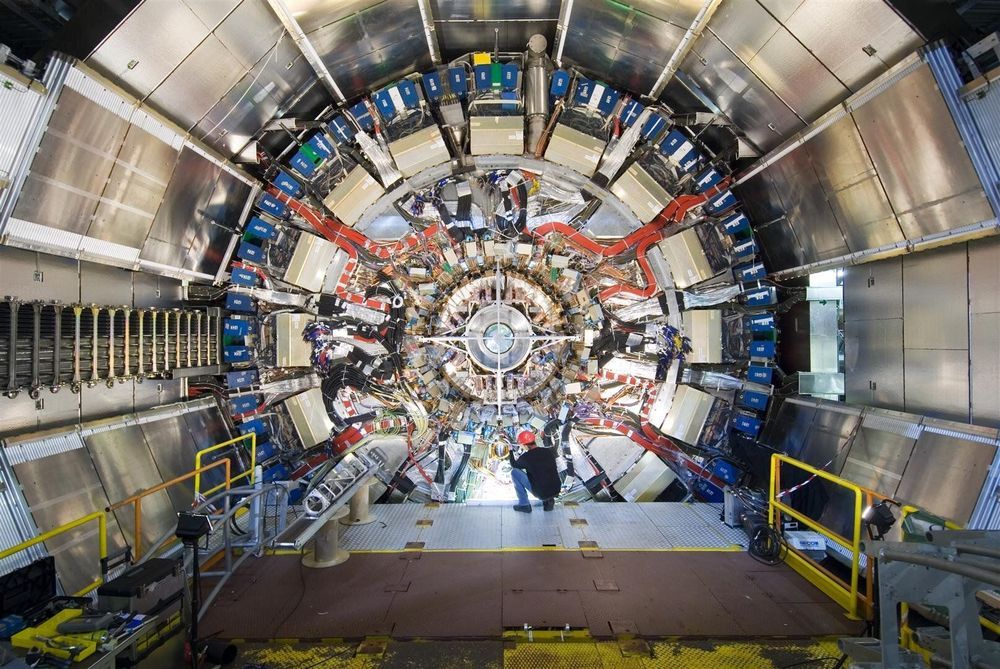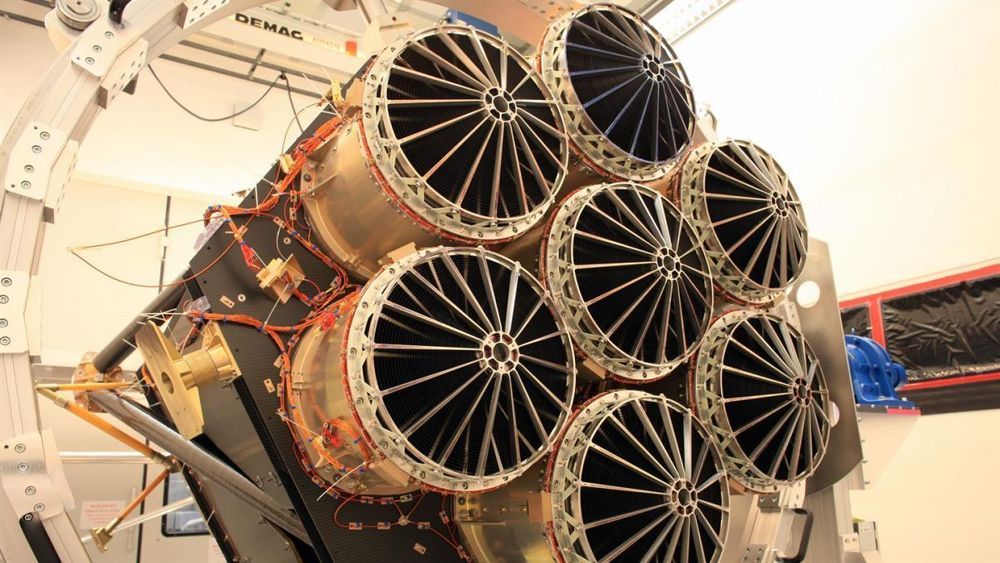The universe will cease to exist around the same time our sun is slated to die, according to new predictions based on the multiverse theory.





Researchers at the University of Maryland, College Park and Towson University are reporting that they have created multiple universes inside a laboratory-created multiverse — a world first.
To be exact, the researchers created a metamaterial — like those used to fashion invisibility cloaks — that, when light passes through it, multiple universes are formed within it. These universes, called Minkowski spacetimes, are similar to our own, except they more neatly tie up Einstein’s theory of special relativity by including time as a fourth dimension.
While this is rather extraordinary, the experimental setup is actually quite simple — though definitely rather unconventional. The multiverse is created inside a solution of cobalt in kerosene. This fluid isn’t usually considered a metamaterial, but lead researcher Igor Smolyaninov and co found that by applying a magnetic field, the ferromagnetic nanoparticles of cobalt line up in neat columns. When light passes through these columns, it behaves as if it’s in a Minkowski universe.

The Standard Model is a remarkably successful but incomplete theory. Supersymmetry (SUSY) offers an elegant solution to the Standard Model’s limitations, extending it to give each particle a heavy “superpartner” with different spin properties (an important quantum number distinguishing matter particles from force particles and the Higgs boson). For example, sleptons are the spin 0 superpartners of spin 1/2 electrons, muons and tau leptons, while charginos and neutralinos are the spin 1/2 counterparts of the spin 0 Higgs bosons (SUSY postulates a total of five Higgs bosons) and spin 1 gauge bosons.
If these superpartners exist and are not too massive, they will be produced at CERN’s Large Hadron Collider (LHC) and could be hiding in data collected by the ATLAS detector. However, unlike most processes at the LHC, which are governed by strong force interactions, these superpartners would be created through the much weaker electroweak interaction, thus lowering their production rates. Further, most of these new SUSY particles are expected to be unstable. Physicists can only search for them by tracing their decay products—typically into a known Standard Model particle and the lightest supersymmetric particle (LSP), which could be stable and non-interacting, thus forming a natural dark matter candidate.
On 20 May, 2019, at the Large Hadron Collider Physics (LHCP) conference in Puebla, Mexico, and at the SUSY2019 conference in Corpus Christi, U.S., the ATLAS Collaboration presented numerous new searches for SUSY based on the full LHC Run 2 dataset (taken between 2015 and 2018), including two particularly challenging searches for electroweak SUSY. Both searches target particles that are produced at extremely low rates at the LHC, and decay into Standard Model particles that are themselves difficult to reconstruct. The large amount of data successfully collected by ATLAS in Run 2 provides a unique opportunity to explore these scenarios with new analysis techniques.

Essentially if you can enginneer a planet to a galaxy you could eventually get to a universe level of enginneering which may be needed if the universe keeps expanding. You could control the great forces of the universe to keep it stable so that it will not die out or collapse into a singularity. They say many things that gravity in the begginning kept the universe stable with dark matter that keeps things expanding other claims say that basically the universe could colapse into a single point that our universe may be a jet of another universe. Others say we live in essentially a bubble surrounded by other universes. I think though if we can reverse engineer a universe we can control our own. This would prevent our own universe from dying out or even the sun from dying out. There have been minor experiments of small universes made in the lab this could explain our own universe. But essentially we could have a perfect universe where nothing dies out or collapses into a single point in theory. Essentially an artificial universe where all the forces are controlled.

Physicists have spotted the highest-energy light ever seen. It emanated from the roiling remains left behind when a star exploded.
This light made its way to Earth from the Crab Nebula, a remnant of a stellar explosion, or supernova, about 6,500 light-years away in the Milky Way. The Tibet AS-gamma experiment caught multiple particles of light — or photons — from the nebula with energies higher than 100 trillion electron volts, researchers report in a study accepted in Physical Review Letters. Visible light, for comparison, has just a few electron volts of energy.“This energy regime has not been accessible before,” says astrophysicist Petra Huentemeyer of Michigan Technological University in Houghton, who was not involved with the research. For physicists who study this high-energy light, known as gamma rays, “it’s an exciting time,” she says.
The Universe is 13.7 billion years old.
About five billion years ago, an energy field that we call dark energy became important. Dark energy is a repulsive form of gravity, which means that the expansion of the universe isn’t slowing down, it’s accelerating.
After 9 billion years of the expansion of space slowing down, it’s now speeding up.

